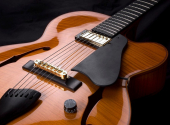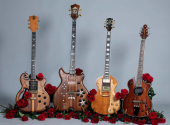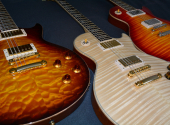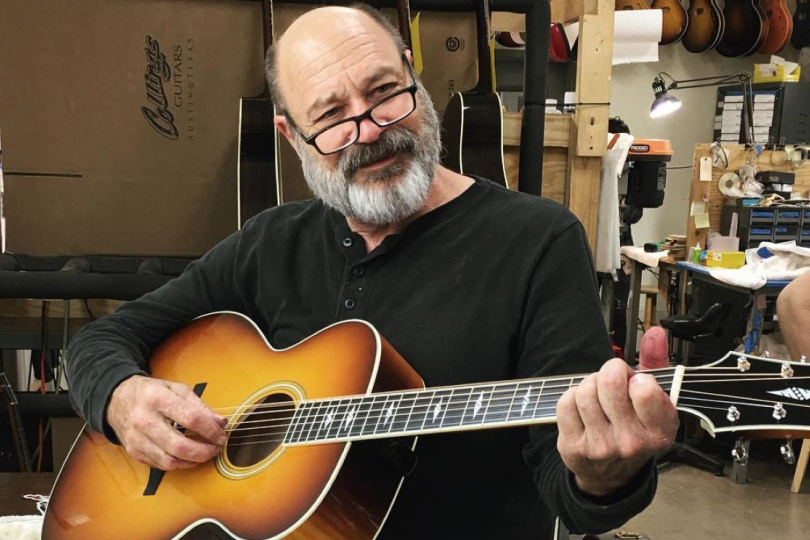
Legendary and Mythical Guitars #5: Collings Guitars
In the music industry, there are companies that make excellent acoustic guitars and those that make excellent electric guitars. Few companies can make top-notch mandolins because their production is difficult and unprofitable. Making professional ukuleles is also a special discipline and replicas of old instruments are almost a rarity. And then there's Collings, which can do all this, and to the highest possible quality.
First meeting
In the last episode of this series, I was nostalgic about the Frankfurt Musikmesse. And I will continue doing so this time too, because it was there that I first discovered the manufacturer I'm writing about today. It was sometime at the beginning of the millennium when my son and I were once again running around the Frankfurt fairgrounds, and after all the discussions in English and German and the Franziskaner beers, we decided to sit down at our friend Franta Furch's booth to have a chat and a Pilsner.
The meeting was wonderful beyond expectations. We discussed all sorts of things over a can of beer and I asked František Furch what he, as a knowledgeable person, recommended I see in the acoustic pavilion. He shrugged his shoulders in his usual manner and said that he wasn't that impressed with anything, but if I wanted to see nice guitars, I should check out Collings, the second aisle on the left.
Well, since Franta said that, I couldn't take the recommendation lightly and went to check out the unknown (meaning unknown to me and until then) company. And my jaw dropped. You didn't have to be a guitar builder to understand that there was something special going on.
Back to the past
Bill Collings had technical talent in his genes. He was born in 1948 in Midland, Michigan. His father and grandfather were both technically skilled engineers, and the gifted young man, who had been tinkering with old motorcycles, cars, and whatever else he could find in his garage since childhood, dropped out of medical school to work in a machine shop. In his teens, he tried playing guitar, but since he was more interested in the technical side of things than in playing, he started looking into how guitars are made. And then he tried it himself.
But he was not the type of artist-guitar maker who resembles, say, a sculptor who pours out his creative emotions into a particular piece of art. Rather, he wondered what technical means to acquire in order to build guitars faster and better. This stuck with him all his life. He enjoyed improving technical equipment, designing new solutions and devising manufacturing procedures.
When he moved to Texas for work in the 1970s, he continued to make increasingly sophisticated guitars for friends in his spare time. And one day, at a Houston club, country singer and four-time Grammy winner Lyle Lovett spotted a strange Martin guitar in the hands of a performer on stage. He went to take a closer look during the intermission and was in awe. "That's no Martin! That's the guitar Bill Collings made for me," he learned from the guitarist on stage, singer-songwriter Rick Gordon. Lovett found Collings to fix his Martin and then had a guitar made by him.
Bill was going to set up his own business in California but ended up staying in Texas and, along with other master luthiers, started building and repairing guitars full-time. Another milestone in his career was a commission from George Gruhn, perhaps the most famous guitar dealer and collector in the world. He ordered twenty-four guitars from Collings. This was in 1987, and it's safe to say that at this point, Collings Guitars was already referred to as an existing company.
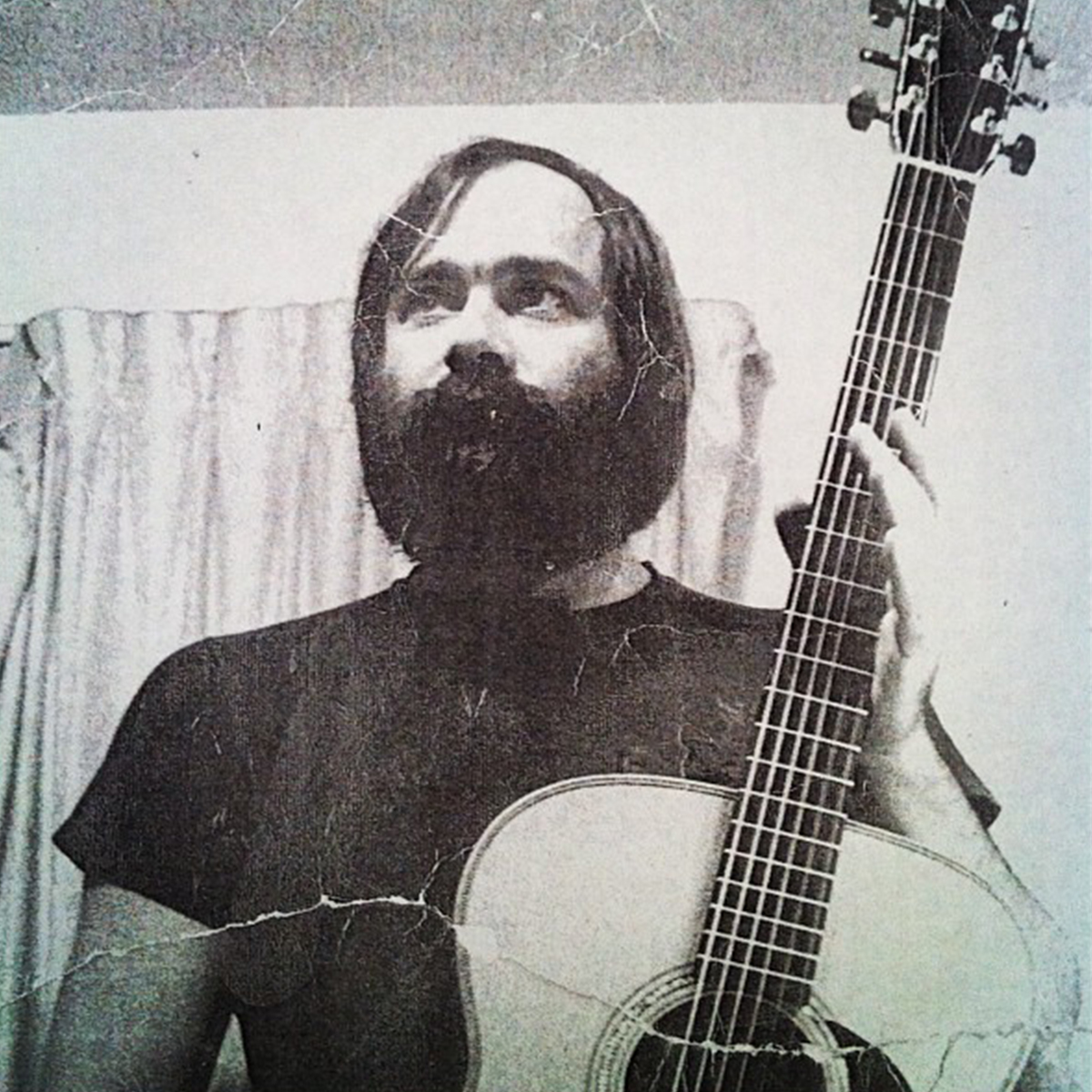
Bill subsequently purchased a new manufacturing facility in a suburb of Austin, Texas and got to work. His fame spread quickly, and before long, names like Joni Mitchell, Pete Townshend and Brian May appeared on his artist roster.
What's more, in 1999, Collings produced his first mandolin, starting a success story similar to his guitars. In 2006, the first Collings electric guitar was born, and in 2009, even a professional ukulele. Today, the factory produces around 2,000 instruments a year in total, with acoustic guitars still dominating.
And that's still not everything. In the last years of his life, Bill Collings was absorbed in the research of the roots of acoustic guitar production and use in America. He was fascinated by the guitars of the 1920s and 30s, which, in the hands of white hillbilly players and also black blues artists, helped lay the foundation for styles such as blues, country, folk, Americana, and others as we know them today. Bill decided to bring these guitars back from the past, and the Waterloo Guitars brand was born. Simpler in design, the very traditional, almost historic-looking instruments are also made in Austin, with Waterloo being the old, defunct name for present-day Austin.
Bill passed away in 2017 after a battle with cancer. But his colleagues are carrying on his legacy and so far they seem to be doing very well.
High precision production
Today, Collings has a great reputation in the guitar industry. Consistency of instruments, almost no complaints and perfection in every detail. What's their secret? As the founder, and thus the "philosopher" of the brand, was much more of a technician than an artist, the precision of production is pushed to the limit. The precisely measured ratio between the individual approach to the instrument – that is, what is typical of "custom" production – on the one hand, and the latest CNC technology to guarantee flawless precision on the other, is the true essence of the brand's success.
Careful selection of the best materials, testing and evaluation of the ideal thickness for each type of wood, and the right combination of top, back and sides are already commonplace in this category. Add to that the technical innovations Bill has implemented in his guitars – from bracing to neck reinforcements in addition to the traditional truss rod and more.
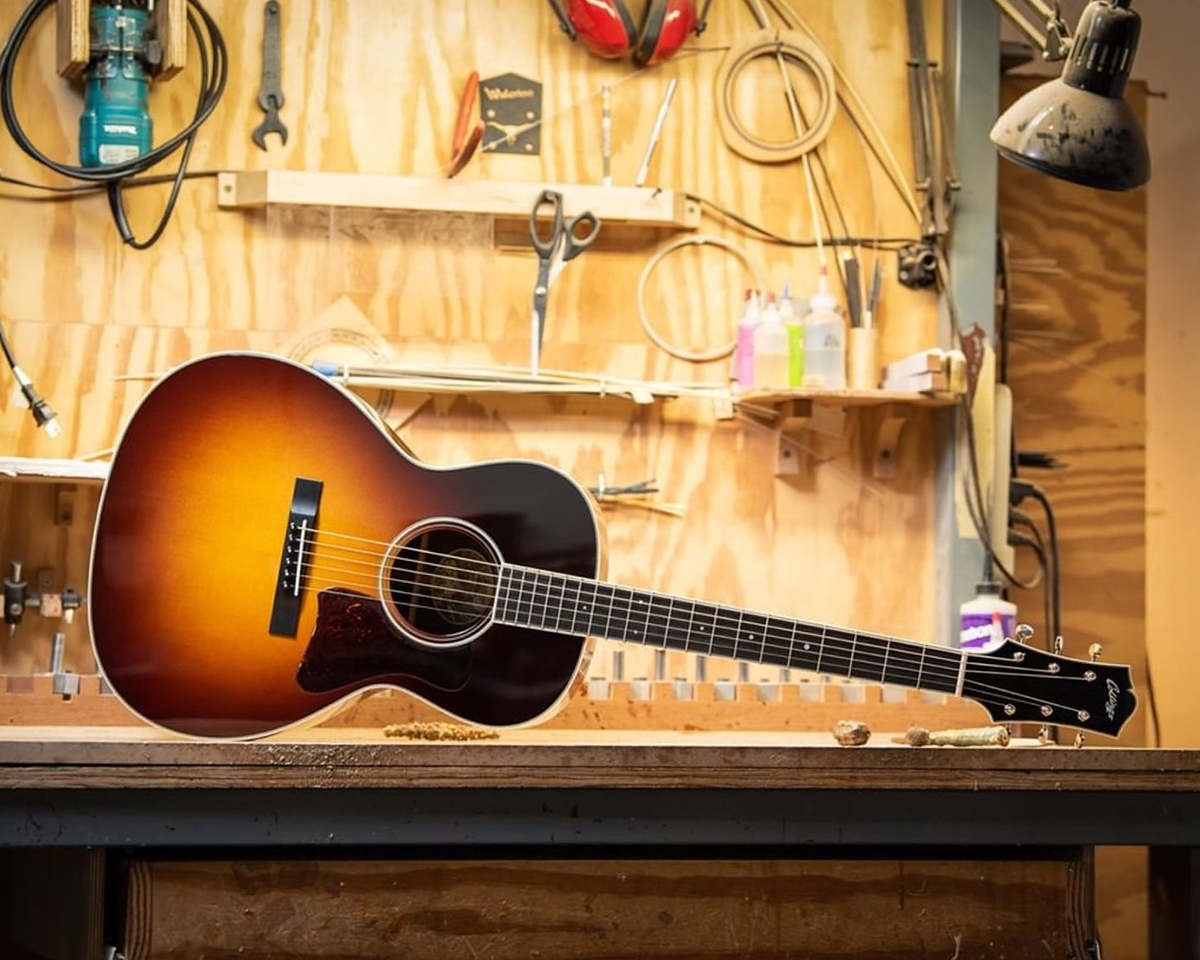
What's in the store
The range of models is extremely wide for such an exclusive brand. It is divided into four categories: acoustic guitars, electric guitars, archtop guitars and mandolins. And we can add the whole Waterloo brand to that. If we listed all the models here, we'd probably just confuse the reader, so I'll try to break it down into a few model lines.
The range of acoustic guitars can be divided into two categories: twelve-fret and fourteen-fret models. The name does not refer to the total number of frets, but rather to the one that connects the neck to the body. Logically, the twelve-string models have smaller body shapes ranging from parlour to OOO and O, while the larger ones come in dreadnought, small jumbo and others. The guitars are available either in natural design or with a sunburst top finish.
When it comes to top materials, all varieties of spruce reign supreme, plus koa and mahogany. For the back and sides, there is a choice of rosewood, mahogany, walnut, koa, maple and wenge (African tropical wood). The choice of binding, rosettes, inlays and other features is endless. Of course, twelve-string and baritone models are also available.
In general, the electric guitars are clearly inspired by Gibson models. Semi-hollowbody guitars (ES 330), single pickup jazz models and Les Paul clones – that's how the model line-up could be roughly summed up. Of course, as in the case of acoustic guitars, all in premium materials and hardware, made with the same care. You won't find a guitar with a single coil pickup unless you count those with a P90. Most of the pickups come from the Lollar workshop.
Archtop guitars consist of three models and feature the typical tailpiece, bridge and f-holes. Collings makes them with either a single humbucker at the neck or no pickup.
Where and for how much
It may seem a bit suspicious now because I have mentioned Stageshop in Budapest several times in our series. But what can I do? They keep the largest collection of Collings guitars for sale in central Europe, both acoustic and electric. A few pieces can also be found at the Nuremberg shop BTM Guitars or the Munich Guitar Company in Munich. If we look at the dealer map, it is clear that the domestic market is the most attractive for the company. But the guitars have found their way to Europe as well as Asia.
The prices of both acoustic and electric Collings guitars are not exactly low. Standard models are around 6,000 to 7,000 Euros apiece. Custom jobs go above the 10,000 mark and there's not much available below 5,000. Electric guitars are similar. The Waterloo is slightly cheaper. Here, prices are around 2,500 to 3,000 Euros.
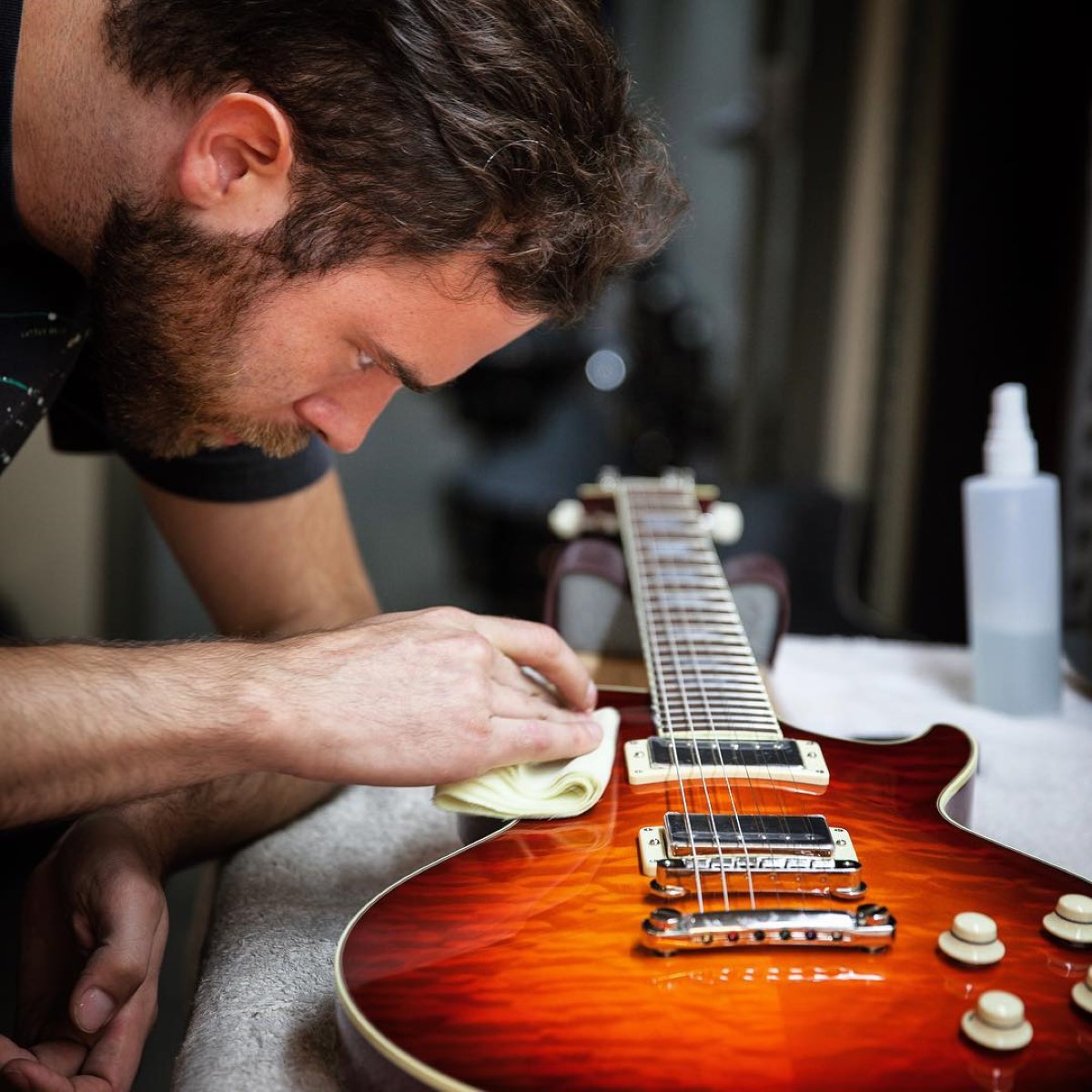
Who's got them?
There is no end to the list of big names on the Collings artist roster so I'll pick just a fraction of them. Andy Summers (The Police), Doyle Bramhall II (Eric Clapton), Josh Smith, Keith Richards (Rolling Stones), Keith Urban, Mark Lettieri (Snarky Puppy), Marcus Mumford (Mumford & Sons), Tommy Shaw (Styx), Zac Brown and we could continue. There's also my beloved Nashville guitarist Guthrie Trapp, who I could listen to for hours.
It's obvious that apart from a few names, especially from the British Isles, Americans dominate the list. This proportion also applies to Collings owners who didn't make it onto the artist roster, as we mentioned above. It's quite an American thing.
To conclude
Bill Collings has been gone for a few years now. But the work he left behind is truly impressive. What he accomplished in his lifetime is the work of several lifetimes for the average person. If you check out the interviews where he talks about his career, there are several lessons to be learned. I guess people can do great things when they: a) have talent, b) do work they enjoy, c) want to be the best in their field and d) treat those around them with respect. Maybe a little luck is also needed. Bill seemed to have it all.
One day when we break the piggy bank at home, I'll buy my Collings too. Or two, one acoustic and one electric. Nobody's gonna put me on the artist roster, but I can live with that. Whether you're a famous musician who sells out stadiums, the whole street knows you or you're just playing for your cat in your living room, the joy of having the perfect instrument is something that I think every musician can relate to. It's sort of like preparing for nirvana.
If you have found an error or typo in the article, please let us know by e-mail info@insounder.org.


